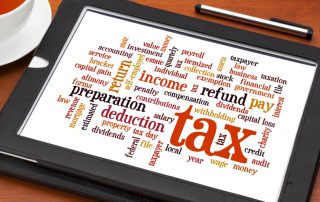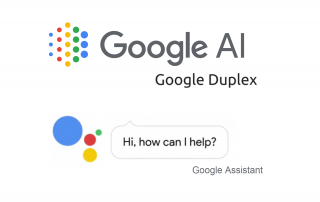EVERYTHING YOU NEED FOR A SUCCESSFUL TAX DAY
The moment that we have all been waiting for is a few weeks away. And yes SARS has announced the opening of the Tax season on the 1st of July and it will run until the 31st of October. Three weeks shorter than what we were all used to.
Taxpayers have to complete and submit tax returns before closing date to avoid unnecessary penalties from SARS. Submitting tax returns gives SARS the opportunity to assess an individual’s income earned, deductible expenses and tax paid over to SARS for the tax period and calculate to see if there is money refundable to the taxpayer or payable to SARS by the taxpayer. It can go either way, after completing the return the taxpayer can request a tax calculation that will show them who owes who money. In some cases, the employee who might have deducted more money in terms of PAYE hence SARS will refund the taxpayer and vice versa.
Now what does this mean for the taxpayer? It simply means the taxpayer has to start preparing to complete and submit tax returns. IRP5’s need to be in place, medical certificates, receipts for medical expenses and all other relevant documents that one needs in order to complete a tax return. If the tax return is going to be done by the taxpayer’s Accountant then all the relevant information needs to get to the Accountant in time. The sooner the tax return is completed and submitted the sooner any refunds can be paid to the taxpayer – time value of money. In the event the tax return is being completed by and Accountant, the taxpayer needs to be available respond to any questions or queries that the Accountant might have regarding the tax return.
Financial Management – Two eyes are better than one
During this last week, we were asked to put together a report for a client, comparing the actual expenditure to date against the agreed budget. We pulled the actual information from the accounting package and sent the report to the client. After he looked at it he sent us a number of questions, checking where certain payments, which he was expecting to see, were allocated and clarifying some of the amounts. It made me realise that everyone has a picture in their heads of how they expect their financial reports to look, based on the payments you have made and remember.
Most bookkeepers use logic and a certain amount of guesswork to allocated payments and income to account categories. However, there are times where our logic and the client’s expectation don’t match up. That is why it is so important to check where the transactions are allocated within your financial reports. You want the reports to portray the picture you intended, so you need to control where entries end up. All accounting packages have some kind of transaction listing that shows what transactions make up the total for a category on the financial report. It is your responsibility to check that everything is in the correct place.
Bookkeepers are a bit like artificial intelligence, they learn as they engage. So effective communication regarding where transactions should be allocated will improve the accuracy of the allocations in the future. However, many people only look at the details once a year, if that, so there is no opportunity for growth and learning, and an improved accuracy. Incorrect allocations can have an effect on your profitability and your tax, so don’t brush them off as inconsequential, rather take the time to get it right the first time.
If you’d like someone to walk you through your financial reports and transaction list, and help you to know what to look for, give us a call and set up an appointment.
When not to file a tax return
It’s one of the most asked questions when it comes to taxes: Do I really need to file a tax return? Most people would turn to the SARS website to find out what the authority has to say about filing a tax return.
On the website, SARS states that you do not need to file a tax return if ALL of the following applies to you:
- Your total employment income/salary for the year income/salaryFebruary 2018) before tax (gross income) was not more than R350 000
- You only received employment income / salary for the full year of assessment (March 2017 to February 2018) from one employer
- You have no other form of income (e.g. car allowance, business income, taxable interest or rental income or income from another job)
- You do not want to claim for any additional allowable tax related deductions (e.g. medical expenses, retirement annuity contributions, travel expenses, etc.).
Most times we assume that if our income is below the tax threshold or we earn employment income, we do not need to file a tax return. The first part, because SARS says so and the later; because the employer files this on our behalf.
But what happens when the employer doesn’t file the PAYE returns on our behalf and we realise 6 years down the line that this has not been done? Or we need to purchase a house and the bank requires a Tax Clearance Certificate (A document from SARS that shows that our tax affairs are in order)? SARS will not issue a Tax Clearance Certificate if we have not filed the returns for all those years that the returns are outstanding. Last year, SARS penalised tax payers who had not filed their returns regardless of the reasons why they had not filed these; even if their income was below the tax threshold. This is because there is no way SARS can tell that a taxpayer’s income is below the threshold unless a return has been filed.
So the question begs: When should I file a tax return? The answer; if you are wanting to avoid the headaches of having to file old returns when the information has far been lost; is always. If you are employed, this will help you to confirm that your employer or previous employer has filed your payroll return; as the information will self-populate on e-filing if this has been done. If not, it gives you an opportunity to follow up with the employer before they shut shop, or you lose contact with them for varying reasons.
Even though SARS states that you may not file a return in certain circumstances; they still stipulate that you should keep the documents concerning income earned for 5 years or until an audit has been concluded. They categorically state that a person who is not required to submit a return, but has during a tax period received income must keep records for five years if they are subject to tax but did not file due to an exemption or a threshold. Therefore it is always prudent to be on the safe side and keep all returns filed and up-to-date.
Government ironing out details for rollout of R2bn SMME and Innovation fund
Due to the complaints by the citizens about banks and financial institution’s refusal to support the SMME’s proposals as they consider them as risky ventures irrespective of the brilliance.
The National Treasury and the Department of Science and Technology have formulated an SMME and Innovation Fund which will be impĺemented during the 3rd quarter, with the disbursements in 2019/2020.
The funds will build on best practices in the sector and will be directed towards innovative and potential start-ups. The fund will lead to the rollout of the EUEP through SMMEs Support Programme for SA(SSPSA). This project will inject R800million into the SMMEs over the next 5years.
The Fund will be announced in September 2018 and will deploy effectively to craft an alternative future for entrepreneurs and SMMEs in SA.
See link
Google Duplex: the future is here
Google has released their new Artificial Intelligence platform dubbed Google Duplex. The key aspect of this application is to relieve us humans of mundane tasks that can easily be done by a smart computer giving us more time to do the important stuff like running our businesses.
I the video below you can see, or hear an example of Duplex phoning an actual hair Salon to make an appointment for Lisa. The interactions and understanding of the human conversation are astounding. All the research and data gathered by Google from years of ‘failed’ projects that we have seen come and go online have all added valuable input into this now clever system.
The future is here. I am keen to see where we go from this as we begin to interface AI speech robots with wearable devices and mobile phones. Scary or not: the future has arrived.






